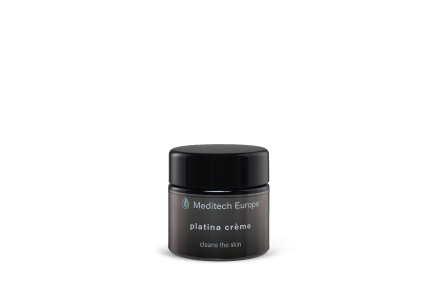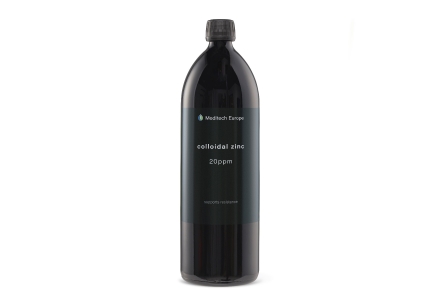
The new year has begun, but instead of carrying out good resolutions with fresh energy, many people actually feel tired, lethargic and more prone to illnesses. What makes the beginning of the year such a challenging month for our health? In this blog, we first dive into the causes behind this winter fatigue and find out what you can do to boost your energy. Read on and be surprised by helpful tips and insights that will help you get through these cold months!
The impact of December on your health
Many people experience a period of excess in December: eating heavy meals, drinking alcohol, lack of exercise due to the cold, and skipping adequate rest can have a direct impact on your energy levels and overall health. As a result, the busy December month can take its toll on your body and mind and cause decreased immunity.
At the end of January often comes irrevocably the day called “Blue Monday,” aka the most depressing day of the year. The revelry is over, the days are still short and cold, and many people feel down or exhausted.
How the lack of light affects your energy
During the winter months, the amount of daylight is significantly shorter, which not only affects your mood, but also your energy levels. In fact, sunlight is essential for the production of vitamin D, a substance that supports your immune system, and (sun) light is essential for regulating your sleep-wake rhythm.
The lack of sunlight can often lead to vitamin D deficiency, which can sometimes be accompanied by a feeling of fatigue.
In addition, reduced daylight affects the production of serotonin, a neurotransmitter that regulates your mood and energy levels. Less sunlight often also means lower serotonin production, which can contribute to feelings of lethargy and sometimes even depressive symptoms. This can be especially noticeable in the early months of the year, when it is dark as soon as you wake up and dark again when you get home. Your body may feel tired and exhausted, even if you have had enough sleep.
Your body's biological clock reacts strongly to the natural light-dark cycle, and when changes occur, your energy levels can fluctuate considerably. So it's important to understand that winter fatigue has more to do with the environment than with personal weakness - nature plays a role in how we feel. Fortunately, there are ways to compensate, such as by trying to increase your exposure to daylight or investing in a daylight lamp.
Why colds and flu peak in January
We're indoors more often at this time of year, in enclosed spaces, making it easier for viruses to spread. The cold also makes us less likely to be outside, weakening our resistance due to lack of fresh air and sunlight. In addition, the dry indoor climate plays a role: centrally heated rooms cause the humidity to drop, which dries out the mucous membranes in our airways and makes them more susceptible to infections. We also often suffer from reduced resistance after the physically demanding and exhausting month of December.
How do you build more resistance?
Nutrition plays a crucial role in strengthening your immune system. Make sure your diet is rich in vitamins and minerals, especially vitamin C, vitamin D and zinc. These substances help your body fight off viruses. Eat plenty of vegetables, fruits, whole grain products, and healthy fats such as those found in nuts, seeds and oily fish. Foods with probiotics, such as yogurt or sauerkraut, also support healthy gut flora, which is essential for a strong immune system.
Exercise is another key to a strong immune system. Regular exercise, such as walking, cycling or yoga, stimulates circulation and improves the functioning of your immune system. It doesn't have to be intense - even a daily walk can do wonders. In addition, exercise helps reduce stress, which can also have a positive impact on your immunity.
Stress management also plays an important role in building resistance. Prolonged stress increases the level of cortisol in your body, which can weaken your immune system. Finding ways to manage stress, such as meditation, mindfulness, breathing exercises or simply taking time to relax, can help you maintain your immune system.
hydration is often an underrated factor. Drinking enough pure water is necessary for your immune system to function optimally. It helps your body eliminate toxins and keep your cells functioning optimally. Try to drink at least 1.5 to 2 liters of water daily, and occasionally add herbal or vegetable teas for extra nutrients.
Why January tests your mental health
After the sociability and social nature of December, the quiet and routine of January can lead to feelings of loneliness, gloom or even stress. This is often because we set our expectations for the new year high, thinking that everything must and will be different starting in January: healthier, more productive, happier. When these goals are not met right away, it can lead to feelings of failure or disappointment.
By allowing yourself now to come into the new year calmly, with realistic expectations and self-care rather than self-criticism, you can better meet this mental challenge. It is important to remember that January is only one month, and your mental health needs just as much care as your physical health - especially at this time of year.
Practical tips to stay strong and energetic during the winter months
Although winter brings its challenges, there are several practical ways to keep your energy up and support your health, even during the coldest months of the year. It may take some extra planning and commitment, but it is absolutely possible to stay strong and energetic even during this time of year.
Make sure you get plenty of daylight
Try to get outside for a while every day, even if it's just for a short walk. Daylight, even in winter, helps your body regulate its biological clock and stimulates the production of vitamin D and serotonin, which is essential for your energy and mood. If it is difficult to get enough natural light, a daylight lamp can be a godsend.Exercise regularly, but not too intensely
Physical activity is an excellent way to boost your energy levels. Choose activities you can sustain, such as a walk every day. Exercise stimulates circulation, keeps your mind sharp and lowers stress hormones. Make sure not to overdo it, however; rest is just as important.Hydrate sufficiently
We often drink less water in the winter, but hydration is essential for your overall well-being. The cold weather may cause you to feel less thirsty, but your body still loses moisture, especially if you have the heating on inside. Drink plenty of pure water and add herbal teas or warm broth to keep your fluid balance up.Eat nutritious and varied foods
A healthy and varied diet supports your immune system and provides your body with the energy it needs to function properly. Focus on seasonal vegetables, fruits, whole grain products and healthy fats. Avoid too many processed and sugary foods, which temporarily increase your energy but also crash quickly. If necessary, you can supplement possible deficiencies through supplements.Get regular sleep
Sleep is crucial for recovery and maintaining your energy. Try to get between seven and eight hours of sleep each night and create a restful evening routine. Avoid screens right before bed and provide a cool, dark sleep environment to improve the quality of your sleep.Strengthen your mental resilience
Winter can affect your mood, so it's important to support your mental health as well. Practice mindfulness or meditation, write down your thoughts in a journal, or take time for relaxation. Stress can quickly deplete your energy, so it's important to find ways to quiet your mind. Small moments of self-care, such as a warm bath or a good book, can do wonders for your mood.Stay socially active
It may be tempting to withdraw during the winter months, but socializing is essential for your mental well-being. Schedule regular get-togethers with friends or family, or join group activities you enjoy. Even online connections can help keep you mentally healthy and connected.
With these simple but effective tips, you can stay strong and energized all year long. By ensuring a healthy balance between physical and mental care, you will be better able to make it through the winter and enter the new year full of energy and well-being.
At Meditech Europe, you'll find a wide range of products that can help you get through the winter strong and healthy. From cosmetics to water purification and other winter products that support your well-being - discover them now and take care of yourself even in the coldest months! Check out our winter products and our supplements and strengthen your resistance this winter. If you have any questions following this blog, you can reach us through our contact page.









